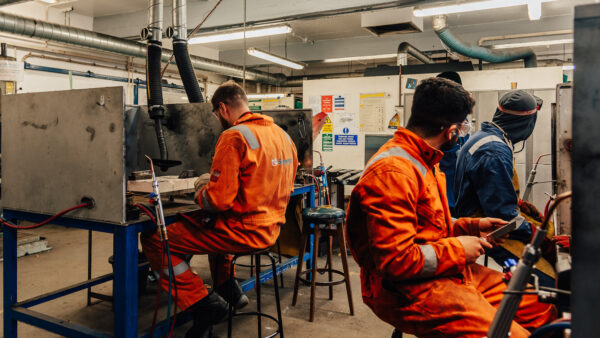In difficult economic times, the last thing that construction firms need is unproductive staff. And yet, it is when the future looks uncertain that employees are most likely to feel disengaged and unhappy. And, because the productivity of staff is directly linked to their feelings of happiness and well-being in the work place, these feelings will inevitably lead to a decline in output.
This is not a paywall. Registration allows us to enhance your experience across Construction Management and ensure we deliver you quality editorial content.
Registering also means you can manage your own CPDs, comments, newsletter sign-ups and privacy settings.
“Happiness” and “well-being” are not some kind of soft concept, but can be finely calibrated. iOpener Institute has collected more than 30,000 management interviews assessing the identifiable key components of “happiness” at work. The interview has been specially designed to measure how people feel about their work, including positive factors such as recognition, respect, and time on task; as well as negative indicators such as likelihood of leaving or sick days off.
There are five key factors that contribute to your happiness at work – known as the “five Cs”. These are contribution (the effort you put into your work and your perception of it), conviction (your ability to remain motivated at work even when things are not going well), culture (how you feel you fit into your place of work), commitment (the extent to which you’re engaged with your work) and confidence (the sense of belief you have in yourself and your job). All of these are required for maximum happiness, and therefore maximum productivity.
Behind the curve
From the compiled data, we can see that in the construction sector specifically, there are some areas where the industry is starting behind the curve in terms of promoting employee well-being and maximising productivity.
For example, when we look at the conviction displayed by workers in the construction sector, we see that the industry is a full 8% behind the all-sectors average.
Similarly, motivation – which contributes to your level of conviction – is another area where the construction sector is performing below par. Workers in the sector are 12% less motivated than their counterparts in other industries.
These feelings of disengagement translate into measurable, tangible effects on productivity and output. From their own analysis of their own productivity, construction workers are 6% less effective at their jobs than employees in other sectors. Imagine the outcome if every employee could be 6% more effective!
Nevertheless, there is also cause for managers in construction to feel encouraged. When compared with some other industries there are areas in which the sector performs favourably. For example, the trust that employees feel in their organisations is 6% higher than the average across all industries, and significantly higher than employees in the mining and automotive sectors (where trust is 20% and 18% lower than average respectively).
In addition, the desire to remain in their current role among respondents from the construction sector is slightly higher than average (2%), despite the lack of motivation and conviction. Here, the sector fares much better than the food service and IT industries, where workers report far lower levels of loyalty to their roles (18% and 12% lower than average, respectively).
It can be hard for managers to maintain positivity among their workforces when times are tough and the industry is in decline. However, measures such as giving constructive feedback, encouraging staff to take responsibility and ensuring that the culture of the workplace is inclusive can go a long way to improving employee well-being and consequently, productivity.
Indeed, the most forward-thinking managers will be evaluating the drivers of their workforce to maximise productivity. The happiness of employees is something very much within the industry’s control and instead of being viewed as a “nice to have”, it should be regarded as something the sector cannot afford to forget.
Jessica Pryce-Jones is joint founder and partner of the iOpener institute for People & Performance which examines the factors that contribute to resilience and how it can be maintained.
To get your personalised, free report measuring your performance and Happiness at Work complete the questionnaire here: http://www.iopenerinstitute.com/get-your-free-report.aspx









